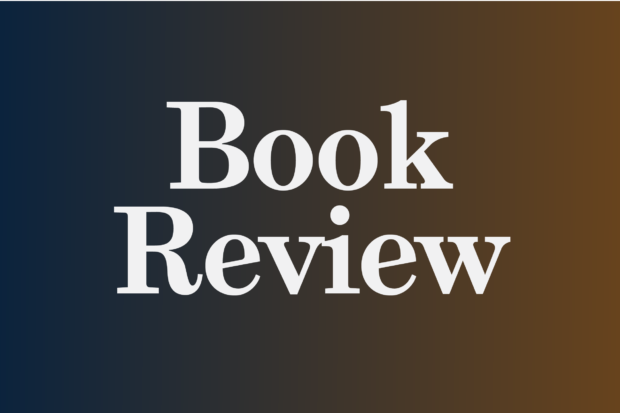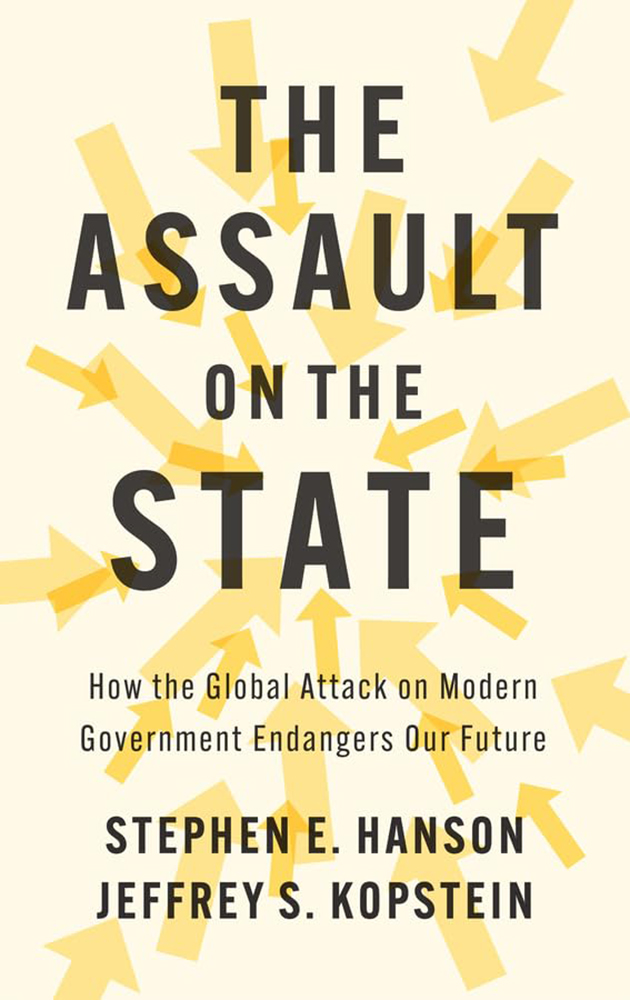
For several years, some historians have speculated that democracies as we know them might collapse—and that repressive autocracies might replace them.
For at least two scholars, however, the challenges that face our world are even more daunting.
In The Assault on the State: How the Global Attack on Modern Government Endangers Our Future, authors Stephen Hanson and Jeffrey Kopstein explore a bleak scenario: that the modern rule-based state might be an endangered species.

Kopstein summarized their analysis in a March 2025 interview with the German news magazine Der Spiegel.
Their book examines the gradual reemergence of patrimonialism in various countries—something of a surprise, given that this form of social organization apparently vanished long ago.
In a patrimonial regime, the state is identical with the ruler, and important government posts are filled with friends and family members. In such cases, Kopstein notes, “People don’t swear loyalty…to an established system of rules that everyone follows…Instead they swear loyalty to a person, a king.”
Societies in premodern times often had this structure. In the course of time, however, the complexity of governing grew, especially in capitalist nations. To meet these challenges, another type of government emerged: a rational polity based on the rule of law. The leaders in such a system have legitimacy because of the positions that they occupy—and not because they are kings or emperors. In addition, government positions are staffed with individuals who have the appropriate educational background for their roles.
This modern state functions in an “impersonal” way—something that Kopstein sees as a positive feature. Everyone who goes to the DMV here in the United States, for example, is treated according to standard procedures, and the same has been true of other bureaucracies.
Over the past few decades, it appears that the patrimonial regime has been making a comeback here and there.
Leaders in various nations have worked to establish 21st century versions of patrimonialism—Netanyahu in Israel, for example, and Orban in Hungary. Both, once they attained power, started to attack their own countries’ bureaucracies and their justice systems. Boris Johnson also undertook such initiatives during his tenure as prime minister in Great Britain.
A similar playbook is now being implemented in our country, for example, via the Trump administration’s rapid moves against a broad array of federal agencies. Should this continue, their authority and effectiveness will be severely weakened and the structures of a patrimonial regime could take hold.
And this project, were it to succeed, would come at a high cost.
What fans of patrimonialism overlook, Kopstein argues, are the vital functions that these agencies play in promoting a nation’s well-being.
“Like the air that we breathe, the modern state is in large part invisible. Therefore many people forget how important it is for our lives. It makes sure that our air and water are clean, that our bridges are safe and intact, that the markets function.”
And the eagerness of some to cut back on putative waste and inefficiency apparently knows no boundaries, “not even when it comes to the way that our soldiers are being trained.”
All of which, Kopstein insists, shows that the danger to democracy isn’t the central threat that should concern us at this point.
Democracy can’t exist at all without a functioning state. On the other hand, smoothly functioning states can easily exist without democracy, as the case of Singapore amply demonstrates.
Ironically, the federal bureaucracies that DOGE has targeted aren’t, in fact, all that bloated. At the start of the second Trump administration there were approximately as many civil servants in these agencies as there were 50 years ago.
The professor’s sense of how bad things could get doesn’t make for pleasant reading.
He speculates that court rulings will block some of Trump’s intentions, but other rulings will allow some of them to proceed. He won’t be able to completely vanquish the state, but many things that have been taken for granted up to now will be eroded.
“Now what’s at stake,” he concludes, “is what we’ve fought to create over the last two centuries: societies which are in large part peaceful, free and secure. And as valuable as democracy is—whether we’ve able to reanimate the modern state once it’s been destroyed is unfortunately unlikely.
“And people will take notice of that. They’ll miss their state.”
So how can such developments be avoided?
Kopstein proposes that the media raise citizens’ awareness of how important our modern state is—and how crucial it is to safeguard it. One way to do this: sharing the stories of veteran civil servants, such as those improving healthcare, predicting extreme weather events and training police officers.
Given the perils he’s delineated, it’s a modest suggestion at best.
Happily, recent events in one country show that a movement toward patrimonialism doesn’t always meet with success.
Poland’s government was once dominated by the illiberal Law and Justice party and its increasingly autocratic policies. But in 2023, Donald Tusk, the candidate of the centrist Civic Platform party, won the election, and the nation has now taken a decidedly different course.
What the future holds for our country, naturally, is yet to be determined.
